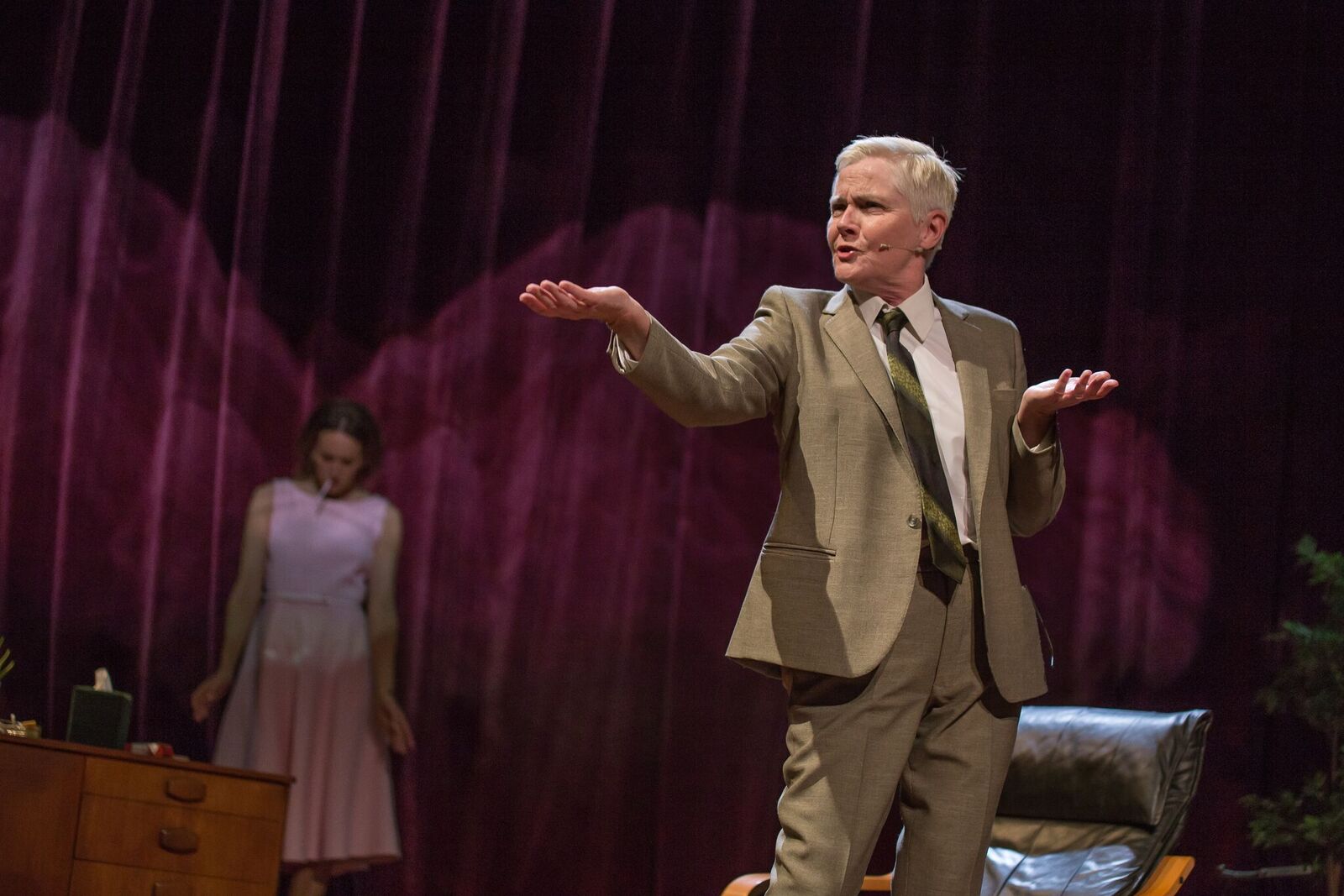In 1964, a set of films were made entitled Three Approaches To Psychotherapy. Directed and produced by Dr. Everett L. Shostrum, they comprised sessions undertaken by three other eminent psychotherapists. The client was a recently divorced young woman called Gloria who was struggling to come to terms with her sexual desire within her newly-single status. The films became known as The Gloria Films and although originally intended solely for the enlightenment of psychology students, they were shown publicly in cinemas and broadcast on television – turning a very private process in to a highly public one.
Writer Gina Moxley of Dublin’s Pan Pan Theatre Company was inspired by the films to write a show about ‘women who defy the herd’, along with other feminist and anti-patriarchal themes. The result is the unbridled piece of dramatic syncopation that is The Patient Gloria. Moxley, who gloriously takes on the roles of all three male psychotherapists across the show, immediately takes ownership of the stage in self -referential style as she addresses the audience directly. Here she sets the tone of interweaving the play’s narrative with a litany of female sexual and social experiences, based upon her own Irish – and universally recognisable – experiences of having been ‘ring fenced by cathedrals of misogyny’.
Moxley and Liv O’Donoghue, whose skills as a dancer and choreographer bring an insightful elegance to the eponymous role of Gloria, act out the three different styles of therapy sessions. The action is aided by brief and pertinent parts of the films being shown against the set’s plush red curtain, on which impressive visuals from Sinéad Wallace also appear to augment the narrative. Like a metaphor for the play itself, Sarah Bacon’s costume design is both spot on and outrageous, with O’Donoghue dressed in pink – as a neat and prim 60s gal – while Moxley’s silver mohair suit is matched with brassy gold boots as her character revels in adorning a variety of phoney phalluses.
Andrew Clancy’s set design chimes with the play’s period, with G plan furniture (though Gloria is more about the G spot). Moxley’s script achieves the trick of tackling a serious subject while managing to make an audience laugh, which she herself does in spades with her fearless exposés that range from the experience of invisibility in age to the problems of excessive politeness when ‘good girls don’t say no’.
John McIlduff brings clear and astute direction to this piece of fierce feminist theatre that is a gallus assertion of modern womanhood. The all-female cast, that is three strong for the most part, is augmented by the appearance four young women towards the end whose silent presence speaks of and to the future. Jane Deasy, who plays bass guitar during the show, leads the cast in rousing rendition Van Morrison’s powerful song Gloria; however it is Moxley’s own final line that nails this production as the affirming and brazenly defiant affair that it is.
